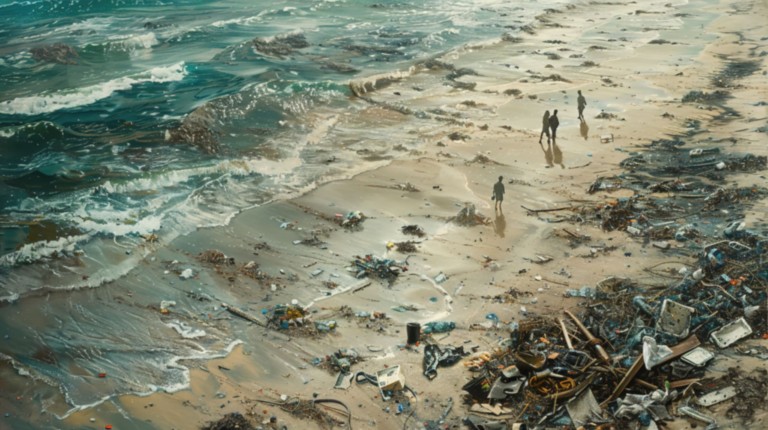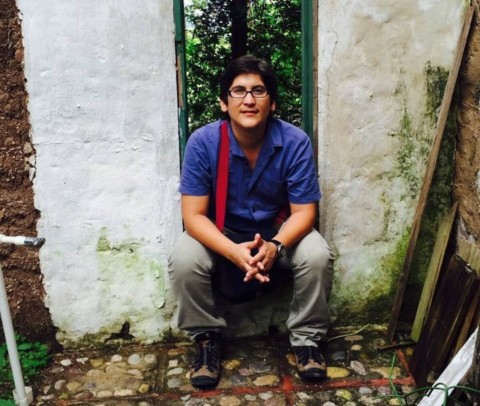We Forget that We Ourselves Are Made of Earth: People Displaced by Climate Change

Between 2017 and 2020, I worked with fishing communities in the municipality of Marcovia, Choluteca, Honduras, known as Cedeño, promoting community organization development. In one of the communities called Santa Cruz (Holy Cross), I don’t know if, deep down, the name foreshadows the struggles and hardships they have to endure, but what is certain is that this town, each winter and summer, has worse and worse conditions in which to live. The buildings have had to “adapt” to the severe flooding that occurs in the area; drought prevents work, and the monoculture of sugar cane or melon endangers food security.
In another locality near Santa Cruz, lives Maricela. She was among the second generation of women who had a restaurant by the sea. Today, the sea has swallowed her business and four more acres, burying the dreams and hopes of a place where there is very little work, leaving relocation to other areas or countries as the only option.
The reality that is not talked about—the one of climate refugees—those who leave with perhaps two or three sheets of metal, a chicken, and a pot packed in "matatas,"1 is the fate of at least a thousand families on the beaches of El Venado, Boca del Río, and Cedeño, where the sea has advanced onto dry land. According to the UN/UNHCR, in its 2023 report on Climate and Development in Honduras, it is projected that between 40,600 and 56,400 people will be forced to move within the country by 2050 due to the conditions generated by climate change.
The Secretary-General of the United Nations pointed directly to greenhouse gases, primarily caused by the burning of fossil fuels. The ocean has absorbed more than 90% of the excess heat trapped by greenhouse gases. Without a doubt, we are witnessing ecological collapse, affecting many people, some with their "matatas" in hand, and others with total indifference, as if it were a gala outfit.
It is important to remember the words of the Holy Father, in what, for me, is one of the most beautiful encyclicals, where he reminds us of the role we should embody as Christians: "This sister now cries out to us because of the harm we have inflicted on her by our irresponsible use and abuse of the goods with which God has endowed her. We have come to see ourselves as her lords and masters, entitled to plunder her at will. The violence present in our hearts, wounded by sin, is also reflected in the symptoms of sickness evident in the soil, in the water, in the air and in all forms of life. This is why the earth herself, burdened and laid waste, is among the most abandoned and maltreated of our poor; she “groans in travail” (Rom 8:22). We have forgotten that we ourselves are dust of the earth (cf. Gen 2:7); our very bodies are made up of her elements, we breathe her air and we receive life and refreshment from her waters." (Pope Francis, 2015, Laudato Si' Encyclical #2).
In raising awareness and prophetic denunciation, alongside the poor and the impoverished climate refugees, we must stand as one to denounce the concrete effects that the industrial enterprises of the global north have on the global south.
Unless we move towards a just ecological transition, a change in the model of production, and a system that puts life at its center—not just human life, but the life of the entire planet—we will continue witnessing the ecological collapse, some indifferent, while others flee with their belongings from their communities, much like what is happening to the communities in Cedeño. The Earth also (lives) dwells in us.
1 "The matata is a bag made of nylon twine or jute that is used in rural areas by the farmers of El Salvador and the south of Honduras. Its origin comes from the Nahuatl word, MATAT."

